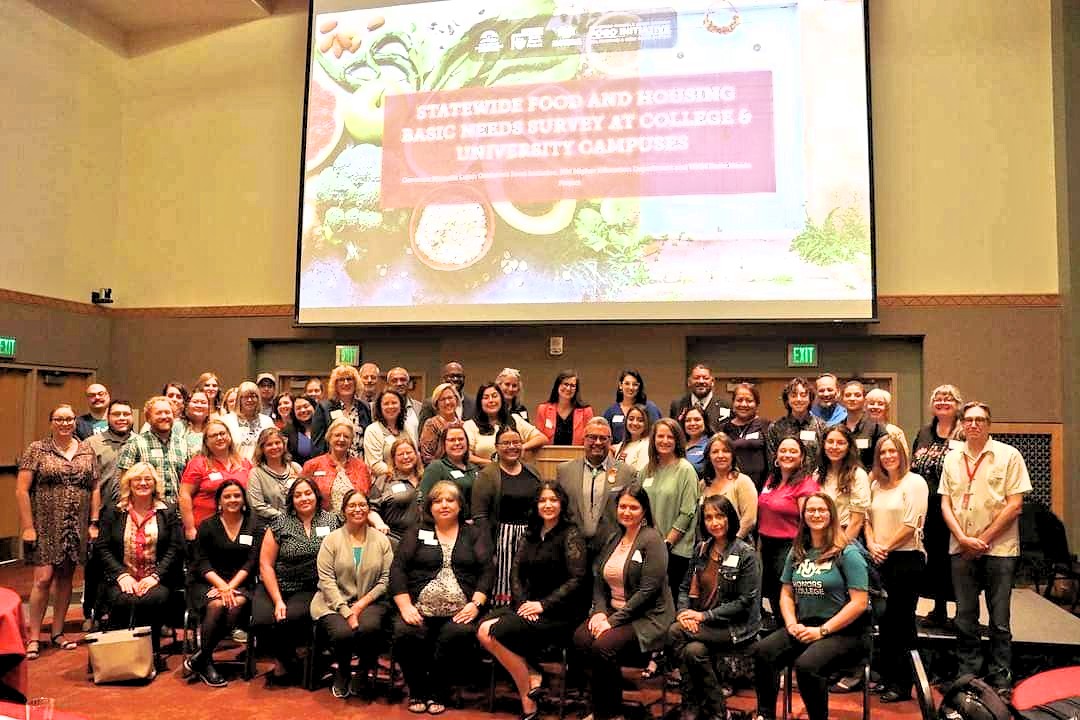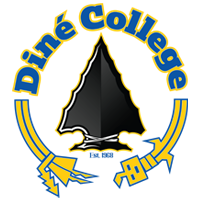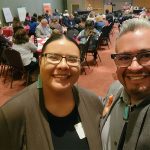
Diné College collaborates with New Mexico state to end food and housing insecurity
TSAILE, AZ — In Fall 2021, the Office of Institutional Planning and Reporting conducted a campus-wide survey among 1,216 students on financial wellness that identified alarming information about our student population’s struggles on food and housing insecurity.
Food Insecurity
- 75% Diné College Students responded “Yes” to identifying as food insecure and/or housing insecure and/or homeless compared to 61% of 2-Year Public Institutions.
- 44% Diné College Students responded “Sometimes” purchased food that do not last and don’t have money to get more food compared to 30% of 2-Year Public Institutions.
- 42% Diné College Students responded “Sometimes” cannot afford to eat a balanced meal in a 30-day period compared to 29% of 2-Year Public Institutions.
- 35% Diné College Students responded “Yes” to cutting down the size of meals or skipping because he/she did not have enough money for food compared to 31% of 2-Year Public Institutions.
- 36% Diné College Students responded “Yes” to being hungry but didn’t eat because there wasn’t enough food compared to 23% of 2-Year Public Institutions.
- 28% Diné College Students responded “No” about the College having enough food pantry or food closet on campus compared to 8% of 2-Year Public Institutions.
Housing Insecurity
- 58% Diné College Students responded “Housing Insecure” to the Housing Security Scale within a 12-month period compared to 51% of 2-Year Public Institutions.
- 45% Diné College Students responded “True” to having difficulty paying for full amount of gas or electricity bill compared to 34% of 2-Year Public Institutions.
- 21% Diné College Students responded “True” to moving in with other people due to financial problems compared to 17% of 2-Year Public Institutions.
- 26% Diné College Students responded with the status of “Homeless” on the Homelessness Scale compared to 16% of 2-Year Public Institutions.
- 11% Diné College Students responded “Yes” to having been homeless at the start of college compared to 5% of 2-Year Public Institutions.
- 23% Diné College Students responded “Yes” to temporarily staying with relatives, friends or couch surfacing while looking for housing compared to 12% of 2-Year Public Institutions.
- 6% Diné College Students responded “True” to sleeping in closed area spaces not meant for human habitation such as a car or truck, van, RV or camper, encampment or tent, or uncovered garage, attic, or basement compared to 4% of 2-Year Public Institutions.
Through the obtainment of student feedback and capturing their voice and story of challenges, the information clearly depicted the struggles students were facing while seeking higher education.
“Our students should be focusing on their schooling, homework, and education without having to worry about where their next meal is coming from or where they will be sleeping for the night,” said Velveena Davis, Executive Director of Institutional Planning and Reporting. “The data showed us that we have a big problem here and we need to do something to address this alarming need to support our students. But we also should not exclude our employees as well who may also be struggling with the same ordeal of lack of quality and accessible food and housing.”
On September 30th, OIPR attended the first gathering of its kind at the University of New Mexico where institutions met with New Mexico Senate members, shared stories, and voiced the concerns surrounding the challenges of food and housing. “We met with Senator Harold Pope Jr. and Senator Joe Jaramillo who listened to the stories shared about our struggles on the Navajo Nation regarding the lack of healthy food access and housing,” said Davis. “It became clear immediately that we were not the only institutions in the room that shared similar struggles about our students and employees were facing among the 29 New Mexico Colleges and Universities that attended.”
New Mexico Higher Education Department (NMHED) recognized that many of its College and University students also shared the same struggles that Diné College revealed. This information sparked discussions among the New Mexico State Senate to take immediate action and the urgency to address. As an initiative to address the concerns on housing and food insecurity among our higher education students, Diné College and 28 other public and Tribal New Mexico colleges and universities were invited to the table to begin collaboration and discussions with NMHED to conduct additional studies, enforce action through data-informed decision making and roll out future initiatives to feed and house our students and employees in Higher Education.
“During the 55th Legislature, the New Mexico Higher Education Department (NMHED) secured $1 million to address food security initiatives for college students. As part of that effort, NMHED announced the launch of a statewide survey to collect food and housing insecurity data from all 29 public and Tribal colleges and universities. The study will be conducted by the University of New Mexico’s Basic Needs Project (BNP), which brings the experience of two years of qualitative and quantitative data on the prevalence of insecurity among students… In the Spring of 2023, BNP will conduct a statewide study consisting of an online survey about levels of food and housing insecurity. The goal is to have all 29 higher education institutions in New
Mexico participate. If the goal is met, the survey will be the first of its kind in the nation, but more significantly, we will have baseline data to coordinate statewide efforts to assure no student suffers from hunger. In addition to collecting data on students, staff and faculty will also be invited to take the survey,” wrote Dr. Patricia Trujillo, Deputy Secretary of NMHED.
We want to thank New Mexico Governor Michelle Lujan Grisham for recognizing this need and allocating funding to support this statewide effort in New Mexico and brining Diné College to the table to contribute.
OIPR will be working closely with NMHED in Spring 2023 to launch a campus-wide survey among Diné College students and employees to collect more information surrounding the topic of food and housing insecurity. Incentives will be provided to those who are willing to take part in the survey under a grant provided by NMHED. “The voice of our students and employees contributing to this survey and study will be a large benefit to address this growing concern and we need as many participates to help share their stories and be a voice in the upcoming study,” said Davis.
As a postsecondary educational institution, Diné College awards Associate degrees, Bachelor’s degrees, and Certificates in areas important to the economic and social development of the Navajo Nation. To comply with the College mission, personalized instruction is guaranteed to each student because of the low student-faculty ratio. All are welcome to apply.



